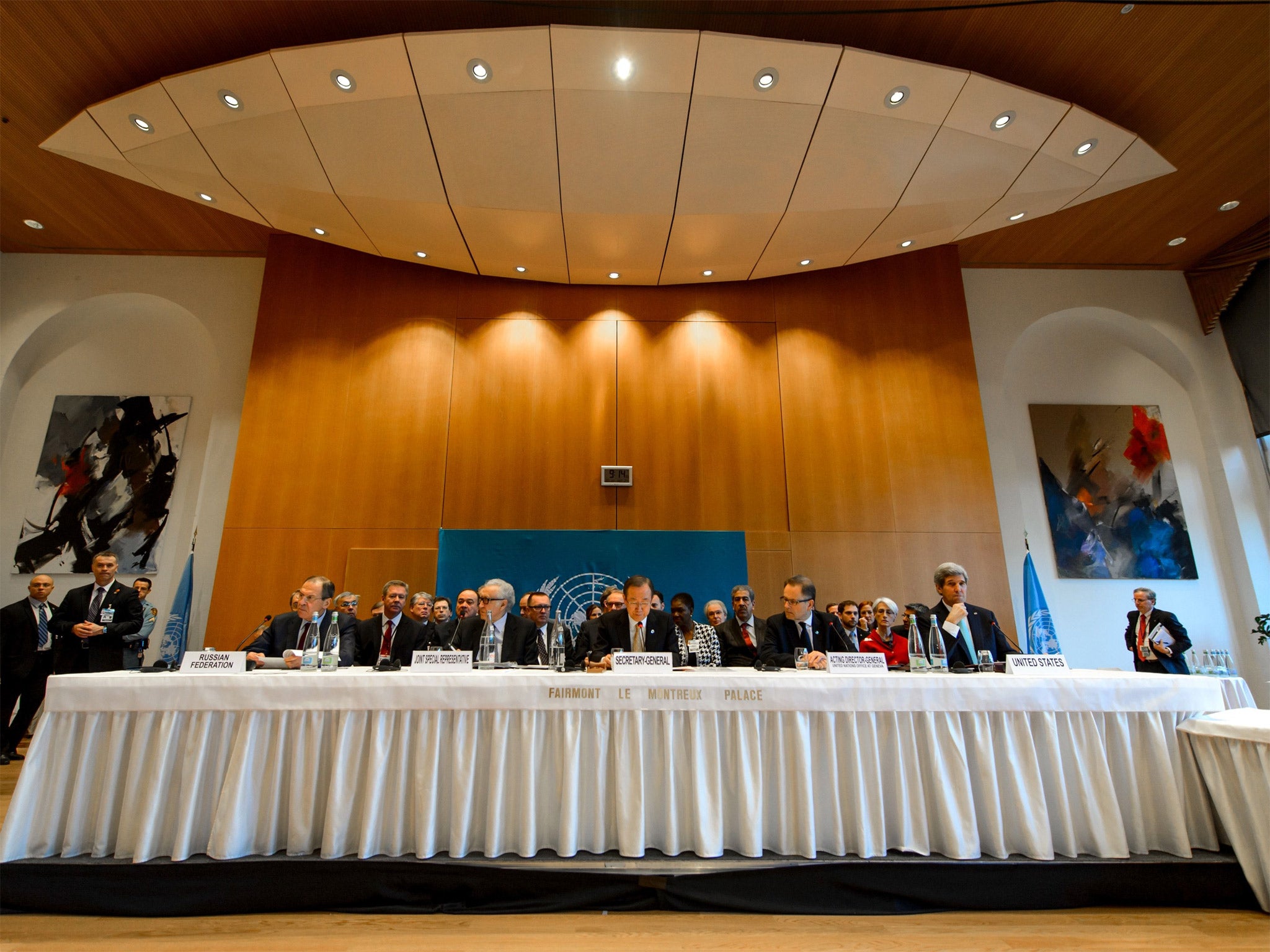Geneva talks: Give Syrians a voice
The peace talks are offering a way out of a vicious cycle, and it is one of the very few hopes for the vast majority of Syrians who reject extremism

People are usually surprised when they know I am Syrian, not because I do not have Syrian features as I very much do, but because I do not fit into some of the stereotypes that westerners have about women from my country. I’m a human rights lawyer who decided to take control of my own destiny and oppose a regime that ruled us by horror and abuse for decades. And I am by no means special, as a great majority of my fellow Syrians made a similar choice. They too do not fit into such stereotypes, whether of extremist fighters or of vicious regime apologists. In fact those images are as strange and appalling to us as they are to people here.
For the past three years, I have watched my country falling into ruins due to a brutal regime that turned torture and mass killing into a family legacy. I have lost close friends and family members, and I have seen the neighbourhoods I grew up in levelled to the ground and schools I went to becoming refuges for millions of Syrians displaced by the shelling and violence.
Having that said, I am one of the more privileged Syrians at home or abroad in the sense that I have not been killed by a brutal regime who mainly targets people like me; I’ve not been abused or tortured in its detention centres nor starved under siege in the cities it still controls. I have not been deprived from my freedom of movement in the areas under the extremists control nor exploited in refugee camps. I also have not seen my own children killed or starved. Other Syrians, however have not been so lucky.
Those of us who grew up under the tight fist of the Ba’ath remember wearing military clothes to school and learning to use a Kalashnikov at the tender age of thirteen. And unlike those who enjoyed using and abusing weapons, this upbringing made me a vigorous opponent of arming and militarisation, and as such, my chances of being heard or accounted for decrease as the fighting continues. Those chances dropped significantly when my countrymen were left with no option but armed resistance against the dictator who was slaughtering them for peacefully calling for freedom. The violence and brutality kept rising under the sight of a silent world, until the regime used chemical weapons to destroy a civilian neighbourhood, killing hundreds of men, women and children and leaving the rest of us traumatised and hopeless.
Confining the international reaction to Assad’s use of chemical weapons to a shy request to deliver them was a mistake. It made Syrians feel that it is acceptable for them to die in silence as long as the West approves the means. The international deadlock was another disgrace that left Syrians uncertain about the actual meaning of “international peace and security” and turned the narrative of human rights for all into a mockery. The peace talks today offer the possibility of limiting the continuing harm of those mistakes, and in order for this to be realised, Syrians need to feel heard and represented.
The Syrian Opposition Coalition continues to struggle with many difficulties; however, I still see it as a fair representative of the Syrian people in the process to end this agony. After all, they were the ones who spoke our minds in Montreux when Ahmad al-Jarba declared our opposition to extremists and thugs and praised the recent moves of moderate fighters who forced those extremists to evacuate cities they used to occupy, unlike Assad who got those very thugs out of prison in three pardons in 2011-2012. And while Assad’s representatives overwhelmed us with lies and threats, it was the Coalition who asked for a democratic Syria in which people like us have a place they can call home.
The peace talks are offering a way out of a vicious cycle, it is one of the very few hopes for the vast majority of Syrians who reject extremism and simply want an end to a bloodthirsty and greedy dictatorship. And the success of those talks is our chance to have a place to go back to and hope to fix what forty years of Assad rule can do to a country and a population.
Laila Alodaat is a Syrian human rights lawyer and a trainer of international humanitarian law. She currently work in a human rights law firm in London.
Join our commenting forum
Join thought-provoking conversations, follow other Independent readers and see their replies
Comments
Bookmark popover
Removed from bookmarks